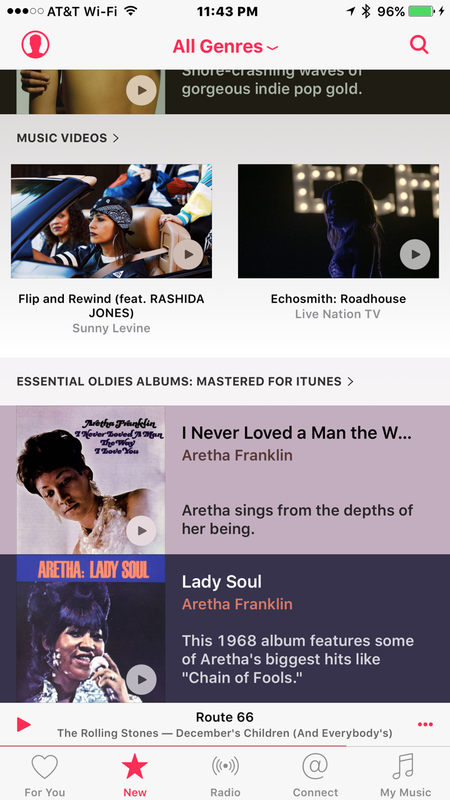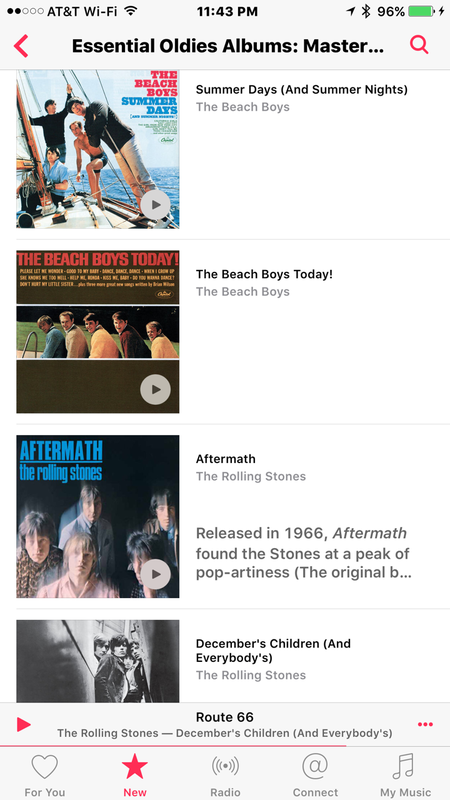The Mastered for iTunes program was implemented by Apple to give artists and sound engineers the best opportunity to provide iTunes with the highest quality masters available in Apple's 256k AAC format.
Loudness Wars
The program has the ability to actually give you a better sounding file than the CD you have owned for years. The reason is the "loudness wars". This was a technique that was popularized (it was around before CDs) during the CD era that had engineers pushing up the levels to make the song/album sound louder on the radio. This process can lead to dynamic range compression, clipping of the peaks in the audio wave, audio distortion, and lower sound quality.
The upside was that when you were listening on the radio, your ears might perk up because the song was louder than the last song that was played. I am not saying that this dynamic range compression was all bad because it did allow you to listen to albums in the car without making you turn up the radio to hear the lower volume parts of a song over road noise, while also making you turn down the louder parts because they were blowing out your speakers. However, I will say that when this process is abused, which is a huge portion of CDs, especially in the 90s, it made it less tolerable to listen to the music on a decent system. In other words, decent sound quality was surrendered to loudness.
Mastered for iTunes
As a result, the "Mastered for iTunes" albums could actually sound better than that CD you bought back in 1991. To quote Bob Ludwig (famous mastering engineer):
"Apple has begun a new initiative called "Mastered for iTunes" which greatly improves the sound of iTunes AAC encodes without changing a single piece of hardware on the 250,000,000 players in the field. It can be so dramatic you can easily hear the difference between the new and old technology on your little laptop speakers.
Instead of ingesting the music from a CD rip or 16-bit file, the new system uses 24-bit master files for the encode. The AAC encoder can make use of bits 17-24. An important addition is the realization that the act of AAC encoding can cause clipping where there was none on the original PCM .wav or .aiff file. In classical music this encoder induced clipping can occur at the occasional climaxes or in a typical over-compressed pop/rock recording, many times a second. Apple has created tools to log the number, severity and time of each clip so the mastering engineer can lower the level of the 24-bit master by fractions of a dB and the clips and resulting distortion from them is eliminated.
It is a complicated answer,but a 24-bit AAC encoded file can thus sound better and measure better in certain cases than a normal 16-bit Compact Disc, which unfortunately has been regarded as the gold standard for sound in these comparisons."
While I believe Apple still gives the artist/engineer enough rope to screw up an album, in the end, most of the albums I have heard in this format sound very good. Steve Hoffman's forum has some of the most finicky sound quality fanatics on the planet, and overall,it seems that they are pretty happy with"Mastered for iTunes" releases.
So how does this fit into Apple Music?
There is good and bad news in this respect. Apple Music has a lot of "Mastered for iTunes" music. The bad news is that there is no easy way to know which albums got the special mastering. However, the good news is that "New" section has an area at the very bottom of the page that features "Mastered for iTunes" albums. They have had everything from Classical, to Christmas, to Singer Songwriter, to Alternative Rock, to Pop and more already. To be honest, I look forward to this section more than the new releases these days. Here is an example from this month:
I have read that most albums on Apple Music that have been remastered in the last few years are probably "Mastered for iTunes". The album page typically has the date that the album was mastered. However, I don't think that the mastering date absolutely guarantees that it was mastered for iTunes.
Personally, I would love to see Apple provide lossless albums over Apple Music that take advantage of similar techniques. However, the current process has the possibility of providing better sounding music despite the fact that the music is compressed. For me, the fact that they aren't charging twice as much to hear better sound quality makes this music more obtainable that Tidal (which offers lossless audio for double the price). I just wish they would make it easier to find these albums via the search option. Also, I think the artist page would benefit from a special "Mastered for iTunes" section. However, I don't want to complain too much because I am happy that Apple is providing them to us without raising the price for access.



 RSS Feed
RSS Feed